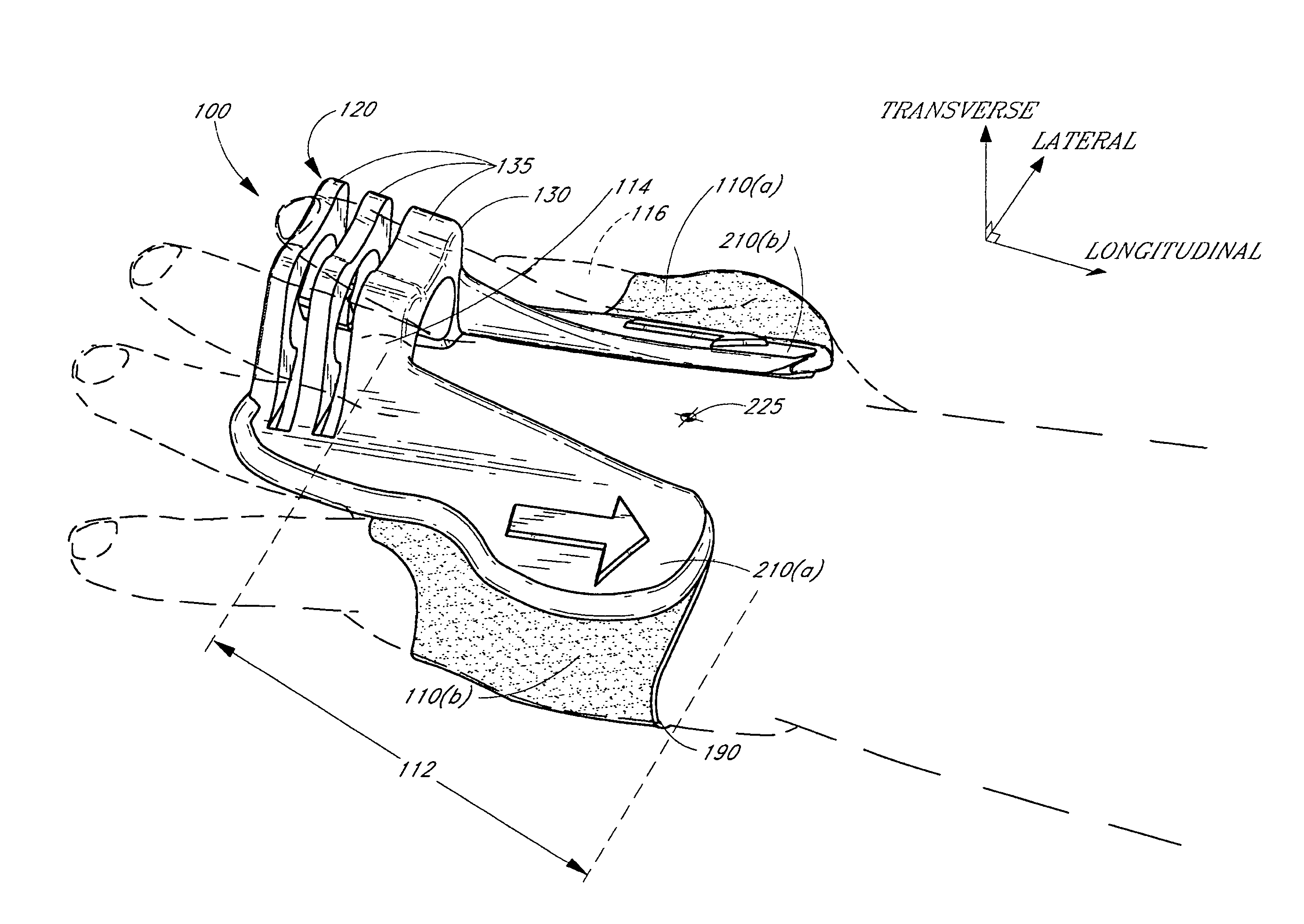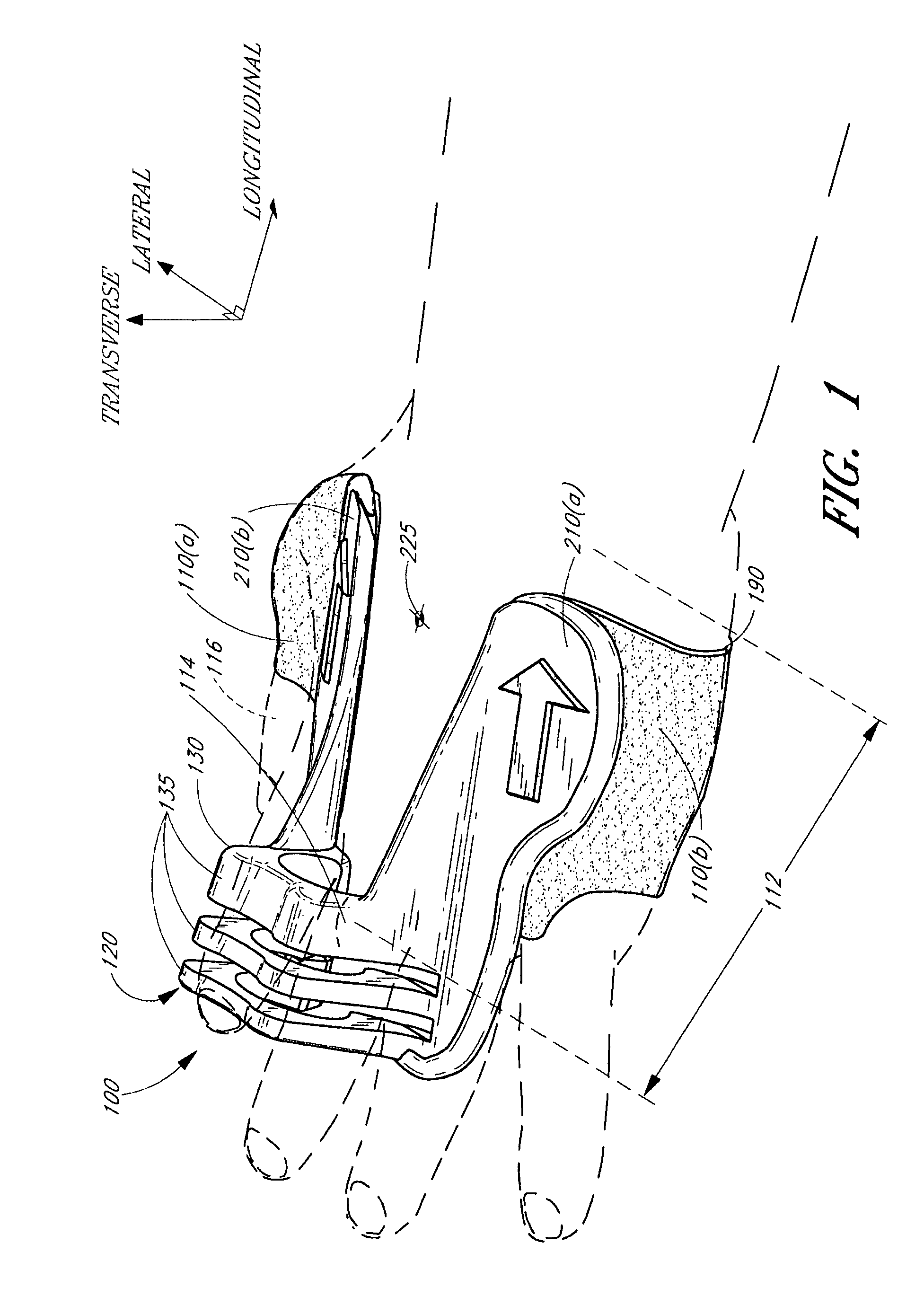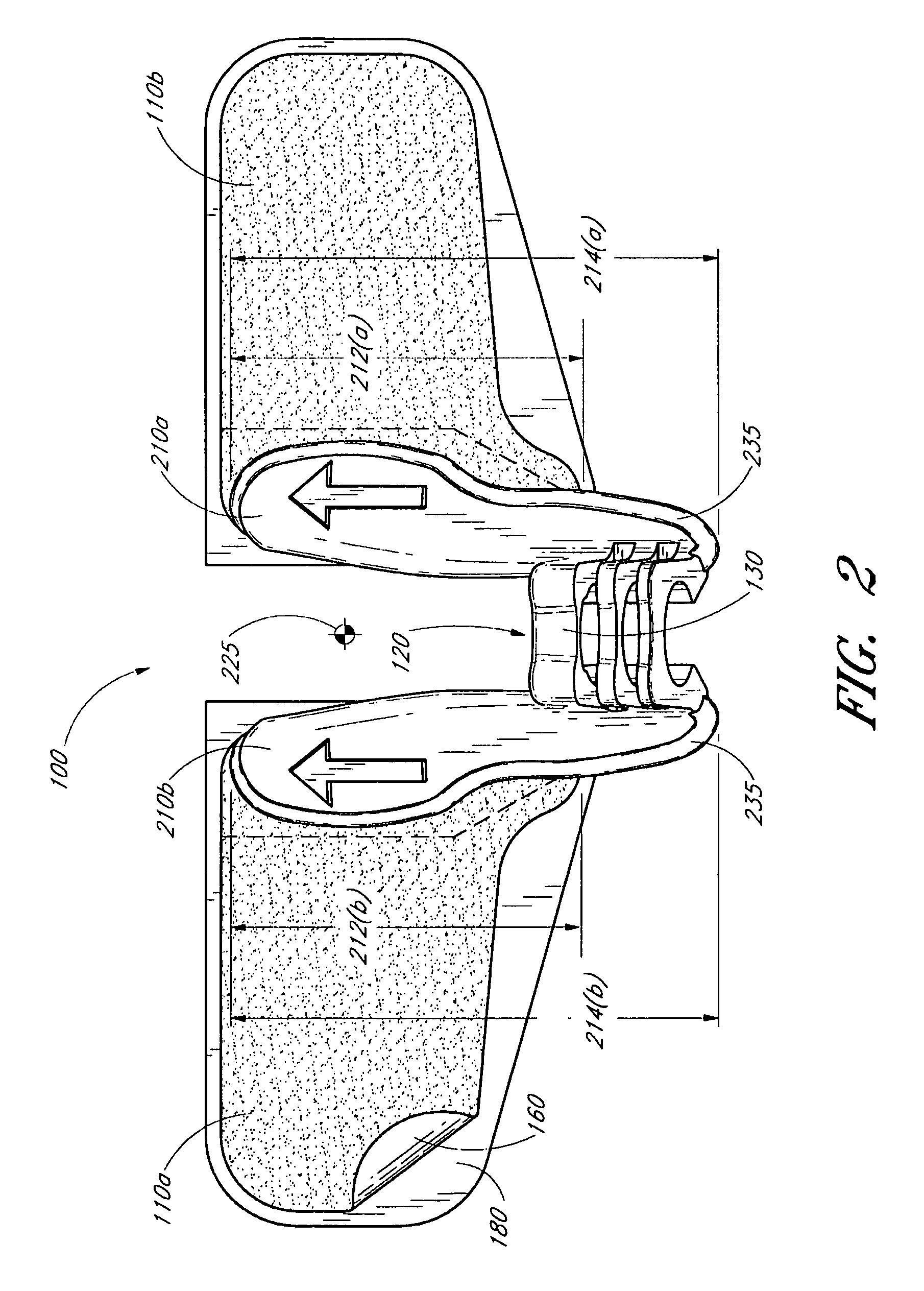Anchoring system for use with neonates
a technology for anchoring systems and neonates, applied in the field of securement systems, can solve the problems of limiting catheter movement, presenting additional challenges to healthcare personnel, infection of neonates,
- Summary
- Abstract
- Description
- Claims
- Application Information
AI Technical Summary
Benefits of technology
Problems solved by technology
Method used
Image
Examples
Embodiment Construction
,” one will understand how the features of this invention provide several advantages over traditional catheter securement techniques.
[0013]An aspect of the present invention involves a securement device for anchoring a medical article to a patient's skin. The securement device comprises at least one anchor member that has a lower adhesive surface configured to attach to skin of a patient and a retainer. The retainer comprises a body member that has a channel formed therethrough about a channel axis and that terminates at a proximal end of the body member. The channel retains at least a portion of the medical article and has a longitudinal access opening to allow at least ingress of the portion of the medical article into the channel. The retainer further comprises at least one abutment that extends generally normal to the channel axis so as to inhibit longitudinal movement of the retained portion of the medical article relative to the body member. The retainer further comprises at l...
PUM
 Login to View More
Login to View More Abstract
Description
Claims
Application Information
 Login to View More
Login to View More - R&D
- Intellectual Property
- Life Sciences
- Materials
- Tech Scout
- Unparalleled Data Quality
- Higher Quality Content
- 60% Fewer Hallucinations
Browse by: Latest US Patents, China's latest patents, Technical Efficacy Thesaurus, Application Domain, Technology Topic, Popular Technical Reports.
© 2025 PatSnap. All rights reserved.Legal|Privacy policy|Modern Slavery Act Transparency Statement|Sitemap|About US| Contact US: help@patsnap.com



